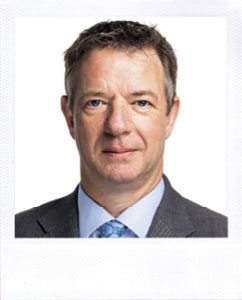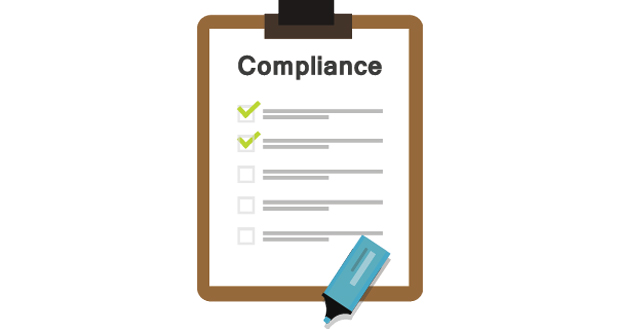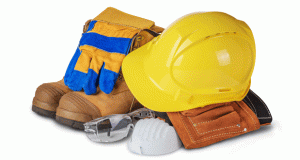As organisations prepare to welcome their people back to the workplace, they must meet compliance standards in order to be able to reopen their facilities safely. Staying on top of the usual legal and statutory compliance at the best of times can be easily overlooked – but during the pandemic with so many new issues that to be navigated, has this slipped even further down the list? Can FMs be confident they’ve kept on top of compliance issues and what practical steps are necessary to ensure compliance policies are up to date?
 THE PROPERTY & ESTATES PROFESSIONAL’S VIEW
THE PROPERTY & ESTATES PROFESSIONAL’S VIEW
LUCY HIND,
HIND CONSULTANCY SERVICES
It has always been a challenge for FMs to ensure compliance, given the changing demands of the property sector. Now with the huge disruption to the landscape of the built environment due to COVID, the new challenges we all face makes this even more difficult. Discussions are being undertaken at many organisations around home and agile working that helps to ensure safe working and the continuity of the workplace.
So when we ask, ‘what do we mean by compliance?’ in very legal terms, statutory means that it is something written in law which says that you have to do something and a failure to carry it out becomes an offence against the state. For us as employers we have to ensure that the working environment is safe, to ensure that all assets have been identified, maintained and regularly inspected in accordance with Legislation and the corresponding Approved Codes of Practice (ACoP’s), British Standards and Guidance. If something did go wrong and someone was injured in the workplace, as FMs we have to prove that all the assets were compliant. There is also the need to evidence this by way of a certificate or maintenance record provided by a competent person or organisation. As FMs and individuals working in the FM & property sector we are all aware that if we do not have such evidence, it is very difficult to defend against prosecution in a court of law.
Given the changing nature of the workplace, questions are currently being asked around the responsibilities that we in the sector continue to hold concerning new ways of working, from those based at home to those adopting a hybrid home/office work pattern. Do we become responsible for a wider portfolio of compliance and buildings; one that encompassed the home workspace along with the traditional and, if this is the case what do we need to consider? Do we undertake boiler checks, PAT, electrical inspections in the home environment along with H&S elements such as DDE (Display Screen Equipment) and what are the implications of doing this from a financial to a personal aspect?
We must remember that compliance does not just apply to HVAC services, there are ever-increasing compliance demands and as these mandates become more comprehensive, the risks are growing. A key number of areas should be considered that today make up an all-round approach to workplace compliance: ethics, Health & Safety, vendor and financial management, labour management, information security, data governance, contractual risks. Does this mean that as FMs our roles will grow? What is clear is that compliance is essential to ensure that our workplace works effectively, efficiently and safely and to ensure this facilities management teams must standardise the data related to compliance and ensure that it is accurate, consistent, timely, complete, and secured. We need to consider the risks of non-compliance and what this means to the organisations in which we work. And we must remember that even a minor infraction can have serious repercussions. All of these things take an enormous amount of time and energy. However, with the development of digital technologies there are solutions that can help FMs increase efficiency, and ensure compliance with policies and procedures. One thing is sure; compliance is growing in importance and as it becomes more and more top of mind in the workplace, compliance must and will continue to be one of the key areas of expertise for all FMs.
 THE WORKPLACE COMPLIANCE CONSULTANT’S VIEW
THE WORKPLACE COMPLIANCE CONSULTANT’S VIEW
GREG DAVIES,
DIRECTOR OF MARKET DEVELOPMENT, ASSURITY CONSULTING
Whether before, during or after the SARS-CoV-2 pandemic, what good compliance management looks like hasn’t changed. What has changed and is likely to endure long after COVID-19, are the expectations stakeholders (from building owners to employees), will have of duty holders on their workplaces and workplace environments.
Certain aspects of statutory compliance, e.g. Legionella and asbestos management, have been long established. Whereas newer topics such as wellbeing, and recent reforms to building and fire safety have been climbing the agenda prior to 2020. 2020/2021 has also seen, for example, air quality/ventilation, workplace strategy (and wider physical and mental health considerations), and net zero also increase in their importance.
The visibility this situation affords workplace, facilities, estates, and health and safety managers offers significant opportunities, but only for those prepared and ready to take them. This means delivering practical solutions and providing the organisation with the information it wants, to support its ongoing activities. It also means building on your existing work and being as agile as your employees may be in your future management and thinking, for example:
Keep your policies and procedures under review – As we redefine our relationship with our places of work, wherever they may be, changes in use and utilisation will need to be reflected in the arrangements for its management. This spans compliance as much as it does HR and IT.
Don’t take risks with your risk assessments – Risk assessments historically have been seen as compliance activities as opposed to fundamental to delivering successful compliance management. Perhaps this is the reason why they feature so highly in enforcement notices and prosecutions for being unsuitable/insufficient. The risk assessment process is the cornerstone for health and safety compliance, so diligent dutyholders must view them as an investment, not a cost, and act accordingly. They are proactive business management tools not tick box exercises, which sit gathering dust on real or virtual shelves!
Evidence your activities – COVID-19 has seen a significant change in the public’s sentiment towards public health and this is likely to translate into greater demands from employees, for information relating to their workplace health and safety. Make sure the information you have is both reliable and verifiable, being backed by relevant levels of certification or accreditation, so you can proactively demonstrate to both staff and senior management the quality of the compliance you have in place. Having your process independently audited can also provide all stakeholders with additional and welcome reassurance.
Review your training– A more fluid workforce requires greater attention to the levels of competent support you have in areas such as first aid, fire evacuation and health and safety. Additional staff to cover these needs may need to be recruited and trained to cover gaps created through hybrid working for example. Similarly, refresher training for others to reflect any further changes in process and/or procedure must also be considered.
Communicate – Good, effective communication is central to any strategy and workplace compliance is no different. However, it may have been a largely invisible part of an organisation in the past. Use its newfound visibility to promote what’s being done, and the quality and safety of the working environment you are producing for them.
Information we provided to our customers as they looked to remobilise their buildings after the initial government restrictions were introduced, included 49 compliance topic areas, with over 150 compliance checks. Achieving effective workplace compliance is no small accomplishment – but then safe and healthy working environments don’t happen by accident.





